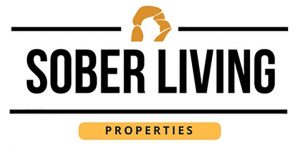The time to begin strategizing for the holiday party onslaught is now, at the outset of the festivities. We are hardwired by tradition to expect the next several weeks to involve joyous celebrations of the season, which in most cases has usually involved imbibing. Now that you are on a recovery journey, this script needs to be rewritten starting now.
Gathering helpful tips for protecting your sobriety and preventing relapse is an important step in early recovery. This may be all new territory to traverse. The idea of arriving at a company party and not enjoying a few cocktails is a foreign concept, as is attending the family Christmas dinner without wine or bringing in the New Year without champagne. The holidays can truly challenge even the most committed to sobriety, simply because of the deep traditions involved.
It is, however, entirely possible to navigate the holiday landmines. These not only include avoiding the temptation to drink at a holiday celebrations, but also involve minimizing stress that ratchets up during the season. After all, stress is the number one trigger for relapse. Arming yourself with a battle plan to make it through to January 2nd should be front and center right now.
10 Tips for Protecting Sobriety During the Holidays and Preventing Relapse
Protecting sobriety during the holidays and preventing relapse is entirely possible with a little planning and effort. Consider these 10 tips:
- Choose social events wisely. With your recovery as the top priority give yourself permission to change it up this year. Instead of attending the usual blowout parties, take a pass this year and opt for smaller, mellower gatherings that might be less drug and alcohol-saturated.
- Be mentally prepared. Run the scene through your mind prior to arriving. See yourself standing firm amid the temptations to partake.
- Take along a sober friend. If it might help, take a sober friend along to the event, just to add an additional layer of support. This is a win-win for both, as being together allows you to watch out for each other, and to escape if either feels tempted to drink.
- Get creative this year. This might be the year to create some new sober holiday traditions. Why not be proactive and plan an event that involves no substances, like a group hike followed by a barbecue, or a potluck followed by movies or games?
- Keep a drink in hand. Be on the offensive by keeping a glass of sparkling water or some other non-alcoholic beverage in your hand throughout the event. This helps to stave off people who might offer a glass of this or that if they see an empty hand.
- Practice your response. Regardless of attempts to deflect drink offers, there will always be an enthusiastic partier who wants to push booze at you. Have a couple of canned responses at the ready, such as, “I just took some medication,” or “No thanks, I’m good.” Practice these out loud prior to the event so they roll off the tongue.
- Have an exit plan. Regardless of all the strategizing for protecting your sobriety during the holidays and preventing relapse, sometimes the scene is just too tempting to actively manage. Go to the event with an exit strategy in place. Possibly mention right off to the host or boss that you have another commitment later and can only stay a short time.
- Reduce holiday stress. The holiday season can be very busy and stressful. When it comes to addiction recovery, stress is not your friend. Use relaxation techniques to help manage stress, such as deep breathing exercises, therapeutic massage, practicing mindfulness, or taking yoga classes.
- Practice self-care. Maintaining overall wellness during the holidays will help keep your mind clear and focused on the big picture—your recovery. Those late nights and heavy meals will wreak havoc with your health, leaving you feeling weak. Instead, get plenty of quality sleep, stick to a nutritious diet, and take time for reflection and prayer throughout the holiday season.
- Stay active. Regular exercise is essential during the stressful holiday season, especially for someone in recovery. Exercise has a multitude of mental health benefits, thanks to the production of endorphins and stress-reducing neurotransmitters, and can lead to better sleep and improved mood.
Managing Emotional Triggers During the Holidays
Holiday festivities can also be a source of emotional stress. Old family rifts can surface, or heated conversations around the dinner table may erupt. Also, grieving the recent loss of a family member can also cause emotional pain, as loss seems to be intensified during the holiday season.
We can also set ourselves up for disappointment during the holidays. We continue to paint an idyllic picture in our minds of what the season should look like and get swept up in the hype. When the reality of the holidays doesn’t seem to measure up to expectations we can become depressed, when can be a trigger for relapse.
Understand that the holidays can spark feelings of anxiety, depression, sadness, anger, or stress. In the past, the substance was relied upon to help smooth these feelings out. Now that you are walking through these emotions without the numbing agent it can be painful. Be prepared for this by taking proactive steps. These might include:
- Attend extra meetings. Make an effort to attend some additional recovery meetings, whether these be A.A., N.A., SMART Recovery or whichever community is your best fit. The meetings can help fortify you through the weeks ahead, keeping your mind on recovery above all else. Mobile apps make it easy to locate a meeting just about anywhere.
- See the therapist. When a particular emotional trigger emerges during the holidays it is good to make an appointment with the therapist. He or she will guide you through the underlying issues and help you adjust your thought patterns and resulting behaviors.
- Participate in support groups. Find an outpatient support group for individuals in recovery that is lead by a therapist with expertise in addiction recovery. These small groups are conducive to sharing personal struggles, and the therapist can guide the conversation toward productive outcomes.
- Volunteer. Being of service to others can accomplish two goals at the same time: helping others in need and getting your mind off of yourself. Volunteering can be very edifying, leaving you feeling you have made someone’s day a little brighter. Offer your assistance at a local homeless shelter or food pantry, visit a sick neighbor, or fix a meal for a lonely senior.
By taking the initiative and heading off a potential emotional trigger to use or drink through these proactive steps, a relapse can be diverted.
Prioritize Recovery Over Holiday Cheer
While we are programmed to expect joy and revelry during the holidays, when you are new in recovery it is important to remember that protecting your sobriety during the holidays and preventing relapse is more important than having fun and socializing. It is okay to just pass on the festivities this year if you are feeling too vulnerable to the potential temptations.
Another possible trap that could threaten recovery is acquiring an attitude that, after enduring detox and rehab, you deserve to treat yourself to some frivolous fun. Rationalizing away the hazards of the disease can lead someone to mistakenly believe that they can handle “just one drink” at the office party. Be aware of the mind games that can come into play, especially during the holidays when you desire to fit in and participate like everyone else. Acknowledge this temptation for what it is, the disease talking.
Strategies for Managing Stress
Life is already stressful enough, and the holidays can compound that with increased demands on time, financial strain, the stress of making travel arrangements, and excessive fatigue. Recognizing the role that stress plays in addiction behaviors is key. To manage the increased stress of the holidays, be tuned in to the signs of anxiety and engage in some stress management activities:
- Adjust your plans. If you feel as if the trip home to see the relatives will be too stressful, cancel it. Your family will understand that the increased stress involved with travel and expenditures may be unwise in early recovery. Likewise, if an upcoming social event is causing distress due to the presence of alcohol, simply decline the invitation. In recovery, you own the screenplay; it is yours to write. If something is going to be a trigger to relapsing it is perfectly fine to bow out.
- Get outside and move. Even a 20-minute brisk walk will provide mental health benefits that can help to calm down stress. Also, getting outdoors exposes you to vitamin D from sunlight, which can help with depression. Fresh air and movement are excellent stress reducers.
- Relaxation activities. Whether it is taking a warm bath with a splash of lavender, listening to soothing music, sitting by a warm fire, or gardening do the things that help you feel more relaxed. Other relaxation methods might include keeping a journal, meditation through guided imagery available on apps, hypnotherapy, and hatha yoga.
Sober Living Housing as a Layer of Protection
Sober living is an excellent option in early recovery to help support sustained sobriety. Staying in a sober living home for a month or two during a particularly stressful time, such as the holiday season, can provide many benefits. A well-managed sober living home is a refuge where you can safely reside without the presence of drugs or alcohol. This removes one of the risks of returning home too soon after completing rehab, where there could be alcohol in the house or family members who abuse drugs or alcohol.
Some of the benefits of staying in sober living include:
- Accountability. Sober living housing reintroduces the concept of being accountable for one’s actions, as well as the sense of not wanting to disappoint the other residents and the house manager. While in active addiction, it is common to focus entirely on yourself and the substance of choice. Now in recovery, there is an opportunity to get outside of yourself and to be accountable to others.
- Order and discipline. Sober living housing is a structured living environment where house rules, schedules, and curfews are imposed. In addition, most sober houses have a zero tolerance policy for drug or alcohol possession or use, providing an important deterrent that helps residents avoid relapse.
- Recovery meetings. Most sober living environments require residents to attend regular recovery meetings at a 12-step or non 12-step program. These meetings help ensure that the residents are still actively working their recovery, and also provide a source of peer support and fellowship.
- Shared responsibility. Residents develop a sense of community through sharing household duties, such as cooking and cleaning. This helps residents develop a sense of how following through on the various chores and responsibilities of the house impacts the quality of life for the whole, adding more accountability.
- Practice recovery skills. Spending time in a sober living environment during the early months following treatment can help residents actively practice the recovery tools they learn in rehab. This can offer the needed time to establish new healthy habits before returning home, as well as the opportunity to become comfortable in their new thought-behavior patterns as they become new habit. Residents can access coping skills as needed while in sober living, and eventually return to their home community more secure in their recovery.
Sober Living Properties Offers Transitional Housing Near Salt Lake City
Sober Living Properties values the residents’ recovery over all else, making our sober homes the perfect place to ride out the holiday season. Sober Living Properties provides clean, safe, and well-managed sober living transitional housing for those who want to further solidify sobriety in early recovery. For more information about our sober living homes, please contact us today at (866) 543-5235.



